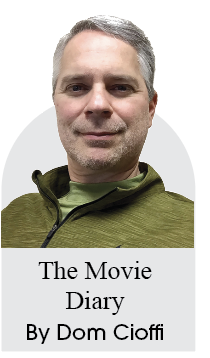
I’ve mentioned many times how much I love listening to podcasts and audiobooks. I listen to them in the car while commuting or traveling. I listen to them while I run and play golf. I listen to them when I’m puttering around the house doing chores. I even listen to them when I go to bed at night.
I love podcasts and audiobooks so much that I now rarely watch television. With television, you sort of have to sit there and pay attention, but with podcasts and audiobooks, you can be productive with other activities and still be absorbed in the content.
But it’s not just the productivity angle that I find alluring. I also love the ability to drill down to the core elements of a particular subject. Anyone can go on a television news show and look and sound good for a 3-minute interview, but make that same person sit down and field questions for two or three hours and you’ll get a much better understanding of who they are and what they believe.
I try to “read” one audiobook a month. My choices run the spectrum, but I mostly gravitate toward non-fiction titles that focus on subjects within science, history, philosophy, or religion. I recently read “Sapiens” by Yuval Noah Harari (a history of humans, which was amazing), and a biography on the theologian Martin Luther that was almost too comprehensive.
I also try to throw in a classic work of fiction on occasion just to mix things up. Over last Thanksgiving, I reread Aldous Huxley’s “Brave New World.” I hadn’t revisited that title since high school, and I was amazed at how well it held up. Currently, I’m halfway through Dostoevsky’s “Crime and Punishment” and finding it much harder to get through, which is embarrassing since it’s regarded as one of the greatest novels in history.
My podcast choices are more inclined to focus on the aforementioned interviews. I love taking a subject like postmodernism, climate change, or immigration and finding interviews with individuals on both sides of the argument. I generally aim for a well-rounded understanding of the topic from various vantage points. Once I feel like I have a solid understanding or even a strong opinion, I’ll then look for debates to see how each argument can stand up to criticism.

What I find (more times than not), is that most topics are full of gray. Nothing is entirely clear-cut and if someone is 100% convinced of something, I tend to be skeptical of their opinion because life is rarely black and white.
When I feel overwhelmed by intense topics, I often opt for lighter fare to give myself a break. Occasionally, I’ll dive into a crime series or something revolving around cults (which I have a strange fascination with). Recently, however, I’ve discovered a podcast that I’m confident is going to keep me entertained for months to come.
The podcast is called “A History of Rock Music in 500 Songs,” and it is a comprehensive and immersive plunge into the history and cultural influence of rock ‘n roll.
Hosted by Englishman Andrew Hickey (a well-regarded writer with a bent toward historical journalism), “A History of Rock Music in 500 Songs” explores the evolution of rock music through the lens of 500 influential songs. Each episode focuses on a specific song and its cultural, historical, and musical significance, providing listeners with a deep dive into the context surrounding the music.
The podcast covers a wide range of genres and eras within rock music, from its roots in swing, blues, country, and gospel to its evolution into various subgenres like punk, glam rock, and alternative. Through meticulous research and insightful commentary (this guy’s voice is perfect for podcasting), Hickey delves into the stories behind each song, offering listeners a comprehensive understanding of the songs’ impact on the broader landscape of cultures.
I’m only two dozen episodes into this podcast, but I can assure any fan of rock music that this is a series that will become an integral part of your life, so definitely give it a try.
Music was also an integral part of Leonard Bernstein’s life, so much so that he became one of the most celebrated conductors and musical educators of the 20th Century. In this week’s feature, “Maestro,” directed by and starring Bradley Cooper, we get a glimpse into Bernstein’s life and relationship with his actress wife, Felicia Montealegre.
As expected of any profound talent, Bernstein’s life was anything but simple. He was an intense man who had an underlying penchant for extramarital dalliances. And while these affairs fueled his passion, they also whittled away at the most important relationship in his life.
Bradley Cooper is Oscar-worthy in this role and could easily walk away with the award in a few weeks. For that reason alone, this film is worth seeing. A colorful “B” for “Maestro,” now available to stream on Netflix.
Got a question or comment for Dom? You can email him at [email protected].




